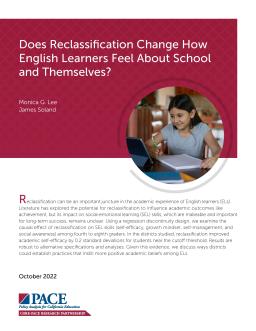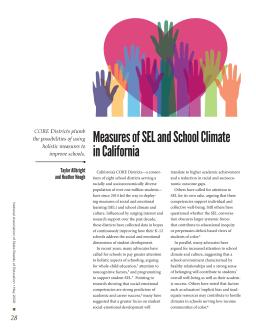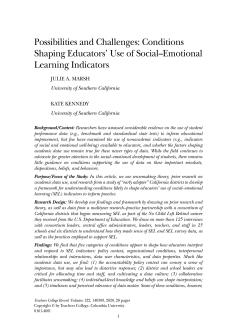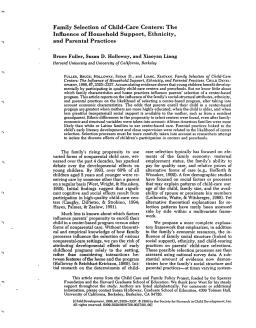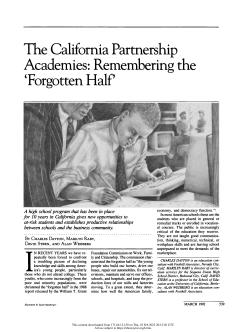Published
Summary
This study explores the impact of reclassification on social-emotional learning skills (SEL) of English learners (ELs) in grades 4 to 8. Using a regression discontinuity design, the study found that reclassification improved academic self-efficacy by 0.2 standard deviations for students near the cutoff threshold. The results suggest that reclassification can positively influence the academic beliefs of ELs and the authors provide recommendations for districts to create practices that foster such positive beliefs.
Published
Summary
California's CORE districts have been collecting data since 2014 on social and emotional learning (SEL) and school climate and culture to improve K-12 schools' holistic approach to student development. Advocates argue that a focus on SEL and school culture will lead to higher academic achievement and better well-being for students. The CORE districts developed survey instruments for SEL competencies and school climate perceptions involving students, staff, and parents. Many states and districts have adopted SEL-specific curricula and disciplinary reforms.
Conditions Shaping Educators’ Use of Social-Emotional Learning Indicators
Published
Summary
This article explores the use of nonacademic indicators such as social and emotional well-being in educational improvement. The authors suggest that while there is little guidance on using these indicators, understanding the conditions that shape the use of academic data can help develop a framework for using social-emotional learning (SEL) indicators to inform practice. The article draws from sensemaking theory and research from a study of early adopter districts in California to develop this framework.
The Influence of Household Support, Ethnicity, and Parental Practices
Published
Summary
An investigation of the family factors and practices that influence parents' choice of center-based programs for young children. Maternal education, child's age, and availability of social support were found to be significant factors in center selection. African-American families were more likely to choose center-based care than white or Latino families, and parental practices related to early literacy development and close supervision also affected center selection. The study highlights the importance of considering selection processes when assessing the effects of early childhood programs.
Remembering the "Forgotten Half"
Published
Summary
US high school students, especially those who do not attend college, have been found to lack skills and knowledge necessary for the job market. The California Partnership Academies program has been developed to address this issue and has been adopted by over 50 high schools. The program has received support and positive evaluations. Factors contributing to the issue include societal changes, the education system, and changes in the labor market. If these issues are not addressed, the US risks falling behind international competitors and a lower standard of living.
